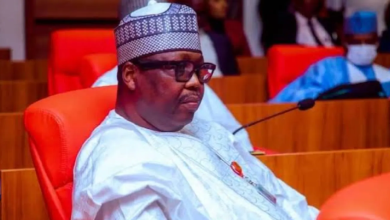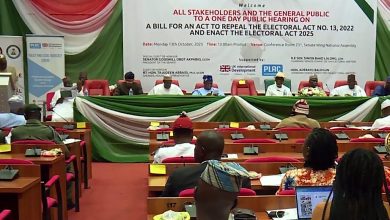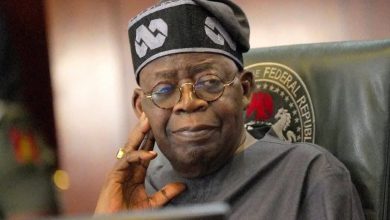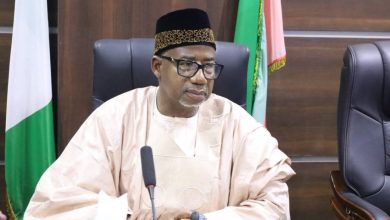ADC Warns National Assembly That Early Elections Could Hinder Governance and Slow Nigeria’s Development
The African Democratic Congress has warned the National Assembly against moving the 2027 elections to November 2026.
The party said the proposal would disrupt governance and turn Nigeria into a permanent campaign ground.
NewsKobo.com earlier reported that the National Assembly is considering holding the 2027 general elections in November 2026.
The African Democratic Congress (ADC) has cautioned the National Assembly against its plan to amend the Electoral Act and move the 2027 general elections to November 2026, warning that such a decision could disrupt governance and slow national development.
In a statement released on Tuesday by the party’s National Publicity Secretary, Bolaji Abdullahi, the ADC said that shifting the election date forward would shorten the period available for effective governance and push the country into what it called a “cycle of endless campaigns.”
The National Assembly had on Monday begun considering amendments to the 2022 Electoral Act, proposing that the presidential and governorship elections be held in November 2026, six months earlier than usual, to allow all election petitions to be concluded before the May 29, 2027 handover date.
While supporters of the amendment argue that it could help improve the credibility of Nigeria’s electoral process, many critics view it as politically motivated. Some opposition groups claim it could be used to extend the tenure of the current administration.
According to Abdullahi, the proposed change would do more harm than good, as it would shift the focus of government officials from policy implementation to political positioning.
He said, “By cutting the political calendar by six months, this proposal risks turning Nigeria into a permanent campaign ground where governance takes a back seat and politics dominates everything else.”
The ADC warned that campaigns for a November 2026 election could start as early as 2025, leaving the country with only about two years of real governance before election activities take over. “Ministers, governors, and other officials will begin to focus on campaigning instead of delivering results. Projects will stall, and public attention will move to elections instead of development,” the statement added.
The party also argued that the solution to delayed election petitions is not to alter the election calendar but to strengthen judicial and electoral institutions. Abdullahi urged lawmakers to learn from other democracies where election disputes are resolved swiftly within existing timelines.
He cited examples of countries such as Kenya, Ghana, and Indonesia, where election tribunals are bound by strict timelines, between 14 and 42 days, to conclude presidential petitions. “The amendment we need is the one that enforces faster judicial processes and stronger institutions, not one that cuts governance short,” the party said.
The ADC further emphasized that Nigeria’s democracy requires reforms that ensure credible elections and stable governance, not constant political distractions. “Nigerians are not just voters; they are citizens who expect good governance as the reward of democracy. The country cannot afford a system where government spends two years campaigning and only two years governing,” Abdullahi concluded.



